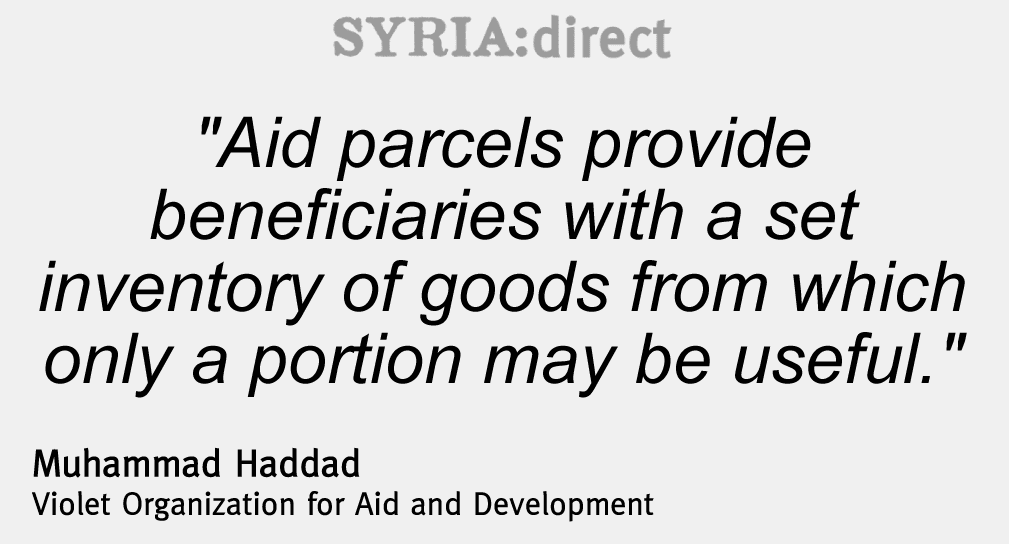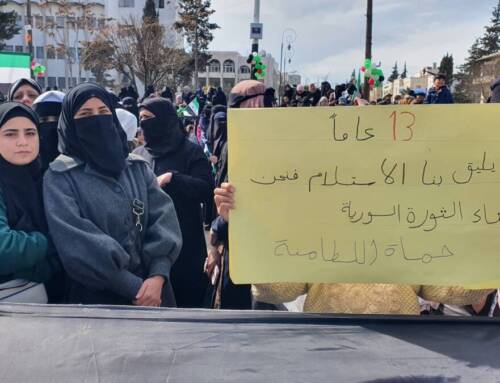A new approach to aid distribution: Vouchers provide shopping experience in Idlib
An estimated 13.5 million people in Syria, including millions of […]
8 March 2016
An estimated 13.5 million people in Syria, including millions of children, are in need of humanitarian assistance, according to a February report by the United Nations Office for the Coordination of Humanitarian Affairs.
Last month, the non-profit Violet Organization for Aid and Development in rebel-held Idlib province opened the doors of its Beit al-Kheir (“Charitable House”). Founded in 2011, Violet is based in Turkey but provides humanitarian aid inside Syria.
A total of 850 families in Idlib city received coupons with different point values. The vouchers can be redeemed at Beit al-Kheir, a distribution center resembling a department store, for non-food items such as clothes, bedding, cleaning and kitchen supplies.
The House aims to “preserve the dignity of the beneficiaries,” Muhammad Haddad, the director of Violet’s Emergency Kit Program tells Syria Direct’s Hiba a-Shami and Sham Omeaa, by giving them “the freedom to choose what they need.”
“It’s better when they select the goods for themselves.”
Q: How did you come up with this idea and what makes it different than other aid distribution projects?
The Beit al-Kheir project has two primary goals. First we hope to preserve the dignity of the beneficiaries by giving them the sense that they are shopping while using the vouchers. Secondly the project offers the beneficiaries the freedom to choose what they need. Aid parcels provide beneficiaries with a set inventory of goods from which only a portion may be useful.
Beit al-Khair in Idlib City. Photo courtesy of Violet.
Q: Were there complaints from residents or a feeling of humiliation when aid parcels or money was distributed?
Even if the people did not complain, of course there would be grumbling about one’s turn or the crowding. We noticed that it’s better when they select the goods for themselves than when they come already packaged.
Q: How many families does the project serve and how were they selected?
In the first phase we selected 850 families whose primary breadwinner has died or is imprisoned. In the future we would like to open the project up to other families who are living in extreme poverty or are internally displaced.
Q: What goods are available at the Beit al-Kheir?
The Beit al-Kheir has clothes and shoes (both new and used) in addition to household items, bedding, kitchen and cleaning supplies as well as toys. A portion of the goods were donated from abroad while others were purchased locally.








